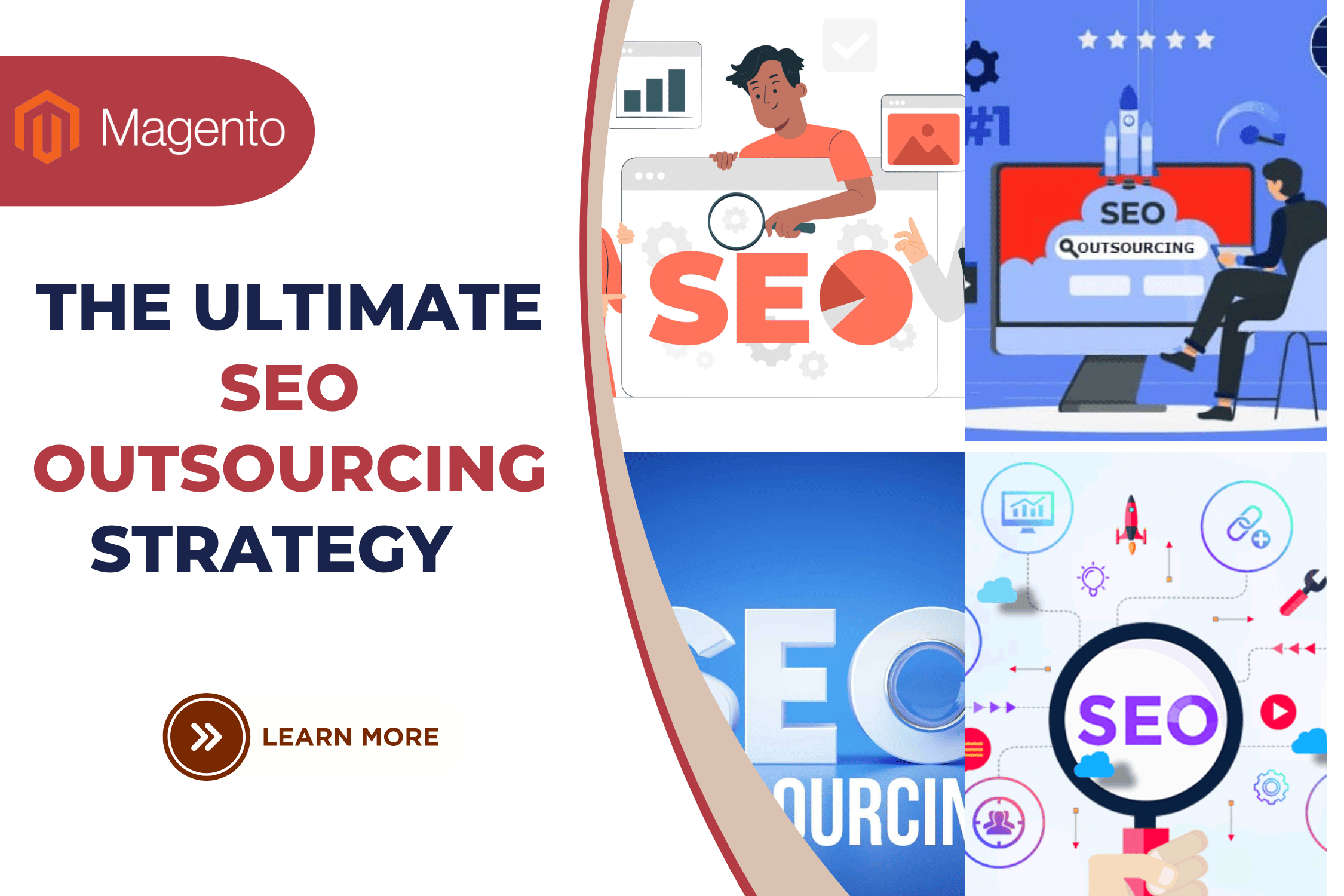
You’ve probably heard the phrase ‘Just outsource it’ around the business circles like a life-saving mantra. And when it comes to digital marketing, SEO is one of the prime contenders for outsourcing.
But what does SEO outsourcing actually mean? Could it be about hiring someone from across the globe to come up with a few keywords for your homepage? Not really.
Let’s look into the mystery and answer questions like what it is, why it works, when it doesn’t, and how to make sure you’re doing it the smart way.
Table of Contents
I. What is SEO outsourcing, and who handles this?
Put in simple words, SEO outsourcing is when you, as a business, hire an external force (individual or agency) to handle your search engine optimization efforts.
Sure, you can manage SEO in-house, but that can be time-consuming and requires specialized skills. With outsourcing, you can focus on your core operation while still benefiting from a strong online presence.
When it comes to the top SEO agencies in the US, a few names frequently rise to the top for their proven results and niche expertise. Skale, which focuses exclusively on B2B SaaS companies, emphasizes that outsourcing SEO allows businesses to scale faster and more effectively. Meanwhile, WebFX specializes in serving B2C and local businesses, offering a full suite of SEO services tailored for eCommerce and brick-and-mortar growth.
II. Why companies choose to outsource SEO
There are many reasons why this is a good strategy for many companies, no matter the size or the products they represent. Cost-efficiency is the first one and the most obvious.
It turns out that hiring a full-time in-house specialist can be expensive, and it’s not all about their salary either. There is software, tools, and training. But with outsourcing, you get an entire team of experts for a fraction of the price.
Another factor is expertise. SEO is always evolving, so what worked a year ago might not work today. Google’s algorithm is keeping the experts on their toes, giving them a new challenge almost daily. It doesn’t come with a handbook, and staying ahead is practically a full-time job.
So, if you’re not willing or able to finance your own expertise, hiring a specialized agency means you’ll get up-to-date knowledge and a broader range of skills.
The last reason is about an outsider’s perspective. Sometimes, internal teams are too close to the product or service. For that reason, a fresh pair of eyes can help you identify new opportunities or issues that weren’t obvious before.
1. The benefits
- Access to premium tools. SEO agencies often have subscriptions to premium tools like Ahrefs or SEMrush, Screaming Frog, and Moz. Buying all these tools yourself can set you back hundreds (if not more) of dollars monthly.
- Faster onboarding and execution. Outsourced teams already have templates, systems, and strategies in place, and they can hit the ground running. There’s no learning curve like you’d have with a new in-house hire.
- Scalable support. What happens when you need more content next month? Or do you want to expand to a new market? Agencies can ramp up services quickly. Plus, you don’t need to waste a month on the hiring process.
- Less management, more strategy. Also, when it comes to responsibilities and obligations, you’re not overseeing a team of strategists, developers, or writers. You just get to see the results and performance updates, and you have more time for a big-picture strategy.
2. The cons
It’s inevitable to talk about these, too, because every coin has two sides. And if you’re not careful, you can run into some pitfalls.
- Less control. Lack of control can be tough if you’re not used to handing things off. Giving an agency access to your site, analytics, and brand voice can feel risky, especially if they use shady tactics or miss the mark on tone. Security and privacy are also concerns when sharing backend access.
- Communication challenges. Communication gaps can happen with colleagues who sit next to each other, let alone with someone who works in the other part of the world and you only exchange emails with. Different time zones, language barriers, and different cultures can all be confusing.
- Quality varies wildly. Not every agency is the same. Some are of higher quality, with great work ethics, while others might not be so devoted. Be wary of those $99/month packages. Often, they’ll leave you with spammy backlinks and keywords-stuffed nonsense.
III. What types of services can be outsourced?
Good question. And the answer is: practically everything. Here’s a list of the main services you might delegate:
1. On-page SEO
Everything about keyword optimization, meta description, internal linking, and HTML tags goes in here. Also, anything that improves individual pages for search engines and users falls under this umbrella.
2. Off-page SEO
Building backlinks of high quality, social sharing strategies, and managing brand mentions across the web are the main focus here.
3. Technical SEO
Sites can have errors, slow downloading speed, or lack mobile-friendly features. So, improving all that is what technical SEO really means.
4. Content creation
You’ve guessed it, blog writing is part of it. Also, website copy, and even video SEO services.
5. Analytics and reporting
Monitoring KPIs like traffic, bounce rates, and conversions is important if you want to see if your strategy is working. Outsourced SEO teams usually provide detailed monthly reports.
6. Local SEO
This service is perfect for businesses with a brick-and-mortar presence in the world. They also need to optimize Google Business Profiles and add local citations. Also, location-based keywords are essential.
IV. How to choose the right outsourcing partner
This part is critical. Finding a proper partner can mean the difference between being on the first page of Google search and disappearing into the digital abyss.
- Take a look at their portfolio first. Reputable agencies should be happy to share case studies and past successes. If needed, feel free to ask for references.
- Then, look at transparency. A good SEO provider will be happy to explain what they’re doing, why they’re doing it, and how it will be measured. On the other hand, if you hear them say something like ‘we’ll get you more traffic,’ without a clear strategy and benchmarks, that is a kind of vague promise that falls into a red flag category.
- Price is another important area. You see, SEO is an ongoing effort. Beware of anyone who promises huge results for very little money. Real progress takes time, strategy, and skill.
- Don’t forget cultural fit. It might seem like a minor part of the deal, but it can cause quite a bit of friction in the long run. For instance, if you like to be regularly updated, and they prefer quarterly meetings, you might face a challenge in communication.
V. When not to outsource
Knowing what benefits it can bring, it’s difficult not to outsource everything. Still, there are situations where something is better done in-house.
For example, if you operate in a highly regulated industry (like healthcare or finance), you may need tighter control over content and compliance. Or maybe your brand voice is so specific and nuanced that it’s better handled by someone within your team.
Also, if you’re just starting out and have more time than money, learning the SEO basics yourself can be a great investment. Tools like Yoast SEO, Google Search Console, and Ubersuggest can take you surprisingly far when used correctly.
A hybrid approach
Maybe you’d like to keep strategic oversight in-house while hiring a team to do the grunt work. Maybe your marketing manager develops the plan, but freelancers or agencies handle the keyword research and content creation. That’s a hybrid approach. This model gives you control and scale, and you’re not stretching your team too thin.
IV. Final Thought: Is your SEO strategy ready to implement outsourced help?
SEO outsourcing isn’t a silver bullet, but it is powerful when done right. It can save money, time, and a few grey hairs. You’re delegating tasks, but you’re also building a partnership with experts who understand your business goals and know how to get you where you want to go online.
The key is knowing what to outsource, to whom, and when. If you’re careful about choosing a reliable SEO provider and stay actively involved in the process, outsourcing can be one of the smartest marketing moves your business ever makes.
Petra Rapaić is a B2B SaaS Content Writer. Her work appeared in the likes of Cm-alliance.com, Fundz.net, and Gfxmaker.com. On her free days she likes to write and read fantasy.











![[SALE OFF] Discount 30% All Premium Extensions On Christmas And New Year 2025 christmas-and-new-year-2025](https://landofcoder.b-cdn.net/wp-content/uploads/2024/12/christmas-and-new-year-2025-1-218x150.png)






